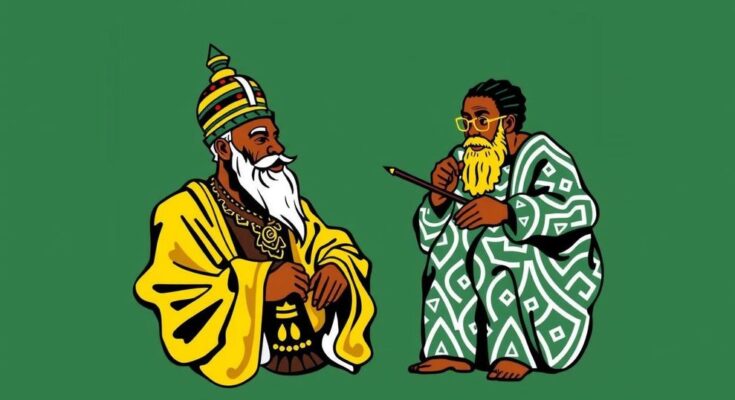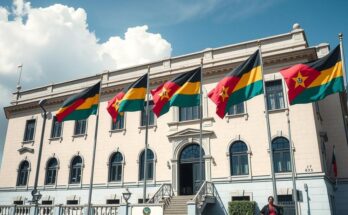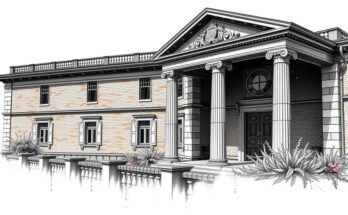The Centre for Public Opinion and Awareness (CenPOA) warns that the endorsement of political parties by traditional chiefs in Ghana threatens national unity and stability. Executive Director Michael Donyina Mensah emphasized that such actions are unconstitutional and called for a separation between the chieftaincy and political affiliations, particularly ahead of the upcoming elections. He raised concerns about the implications for youth respect towards traditional authorities.
The Centre for Public Opinion and Awareness (CenPOA) has voiced serious concerns regarding the increasing trend of traditional rulers in Ghana endorsing political parties and candidates. Executive Director Michael Donyina Mensah highlighted the constitutional prohibition against such endorsements and warned that this practice, particularly in the lead-up to the December 7 elections, poses significant risks to national unity and stability. In an interview on Rainbow Radio 87.5FM, he underscored the need for chiefs to refrain from partisan politics, emphasizing that their involvement in such endorsements is alarming and potentially unconstitutional.
Mr. Donyina Mensah elaborated that the ongoing entanglement of politicians in chieftaincy conflicts, such as those witnessed in Bawku, complicates resolution efforts. He noted the unprecedented level of endorsements from chiefs during the current electoral period, stating that it undermines their role and the integrity of the chieftaincy institution. Drawing comparisons to historical European monarchies, he expressed the necessity to move cautiously to safeguard Ghana’s democratic principles from the politicization of the chieftaincy.
Moreover, he called for an end to political endorsements stemming from tribal affiliations and religious ties, branding such practices as detrimental to national cohesion. He cautioned that failure to adhere to these principles could lead to a loss of respect for traditional authorities among the youth of Ghana, urging chiefs to honor their responsibilities by avoiding political affiliations to preserve their dignity. He concluded that maintaining the integrity of the chieftaincy is vital for Ghana’s progress and development.
The traditional institution of chieftaincy holds a significant place in Ghana’s cultural and societal structure, traditionally serving as a unifying force among communities. However, the recent political landscape has seen increased involvement from chiefs endorsing various political parties, which runs counter to Ghana’s constitutional guidelines. The Centre for Public Opinion and Awareness has raised concerns that such endorsements threaten national unity and could destabilize the political environment, particularly with upcoming elections. This situation underscores the delicate balance between traditional authority and political engagement in contemporary Ghana.
In conclusion, the endorsement of political parties by traditional rulers in Ghana presents substantial challenges to national unity and the integrity of the chieftaincy institution. As articulated by Michael Donyina Mensah from CenPOA, adherence to constitutional mandates is vital for protecting Ghana’s democracy. The call for chiefs to dissociate from partisan politics is imperative to maintain their authority and respect within the community, ensuring that chieftaincy remains a source of stability rather than division as the country moves toward critical elections.
Original Source: www.ghanaweb.com



